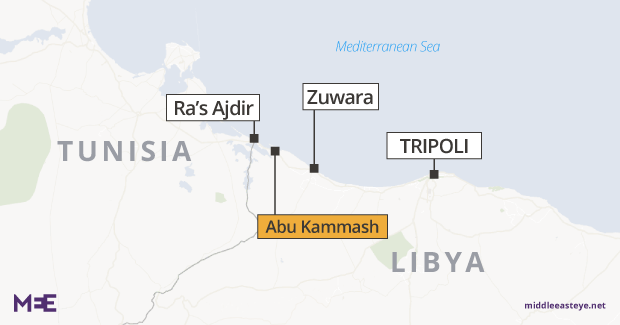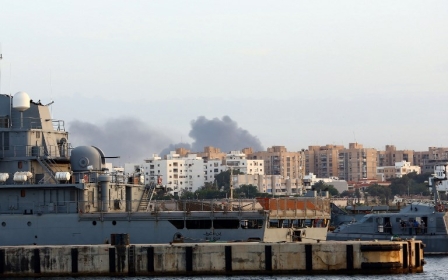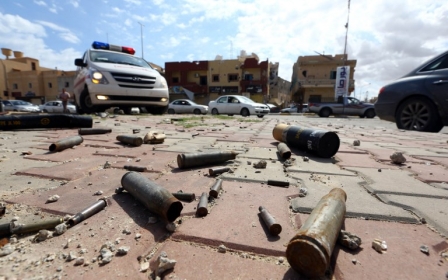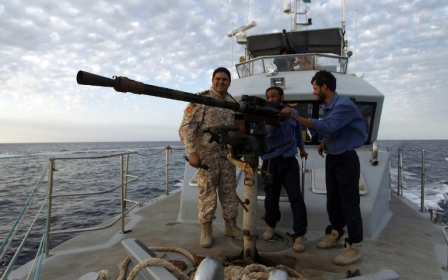One dead as militias fight over Libyan-Tunisian border crossing
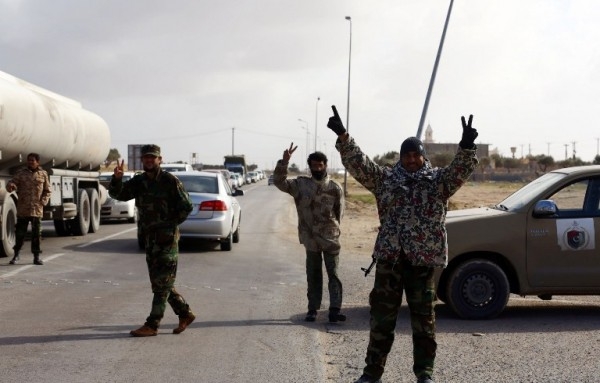
Violent clashes on Friday between armed groups in a western Libya village near a lucrative border crossing and port have left one dead and three injured, according to local residents and reports.
Militias loyal to the UN-backed Government of National Accord (GNA) launched an attack on local armed fighters in Abu Kammash, a village on the outskirts of the port town of Zuwara, a major smuggling hotspot.
The attack was the latest skirmish over Ra's Ajdir, a critical border crossing between Tunisia and Libya, where everything from tinned tomatoes to fuel passes back and forth daily.
Livelihoods on both sides of the border are so dependent on the crossing that the impact of its closure can be felt within days in local economies and households.
The area has seen repeated clashes over the course of the war as various forces have attempted to take control of the crossing as well as Zuwara's port.
"This is the GNA attempting to take control of the border crossing," a Libyan analyst, who asked to remain anonymous because he is currently in Zuwara and feared reprisal, told Middle East Eye.
"Ra's Ajdir was always an area of controversy ever since the revolution because locals took it upon themselves to secure it. Now they feel like the GNA-backed militias have no right to take that control from them."
The crossing between Libya and Tunisia closed on Friday as clashes took place.
Residents of Zuwara posted messages on social media calling for friends and family members in Abu Kammash to leave the area as reports of militias approaching reached them. Fears of further attacks are widespread among locals.
By late on Friday, according to local news outlets, the fighting had halted, but the crossing remained closed.
'This is likely to be just the beginning of more tension between groups in the area'
- Libyan analyst in Zuwara
A member of the GNA-backed forces, headed by Libyan commander Osama al-Juwaili, told Libya Alahrar TV that this operation was part of the first stage of what has been described as the forces' security plan for western Libya.
The plan, launched by Juwaili on Thursday, is said to be aimed at tackling criminal activity in the west and "reclaiming control" over the country's borders.
"This is likely to be just the beginning of more tension between groups in the area," the analyst added.
The Security Directorate of Zuwara, which decried the attack as an ambush, said in a statement it held the GNA's interior ministry responsible.
The UN-backed Presidential Council (PC), which presides over the GNA, is headed by Fayaz al-Sarraj, a figure who has remained controversial since he arrived in Libya in March 2016 by boat after authorities closed the country's airspace.
The GNA has met resistance from many groups, including some of those involved in these latest clashes. Some defy the GNA because they don't recognise the UN political agreement on Libya; others don't want to give up their arms or control of their local areas.
A fighter in Zuwara's defence militia told MEE that the city's fighters will "under no circumstances" relinquish their control over the port of Zuwara, or what he called "the safety and security of the city".
"We are well prepared for further attack," he added.
Libya’s powerhouses
While the international community recognises the GNA as the representative body of the country, control over Libya remains split.
The GNA, based in the country's western capital city, Tripoli, was welcomed by much of the population with great optimism, taking over in March 2016 during a time of great financial crisis and instability.
However, public support for al-Sarraj and his government has plummeted.
Also in Tripoli is the Government of National Salvation (GNS), which presides over the General National Congress elected in 2012. The ever-weakening GNS no longer controls any relevant institutions.
Then in the east there is the third centre of power, including military forces loyal to general Khalifa Haftar and the House of Representatives (HoR). The HoR was supposed to work under the UN agreement which brought in the GNA, but it has endorsed a rival government operating from the eastern city of al-Bayda instead.
All three have failed to engage in successful peace-making efforts.
Since May 2017, Haftar has issued repeated threats that his forces would take over Tripoli.
New MEE newsletter: Jerusalem Dispatch
Sign up to get the latest insights and analysis on Israel-Palestine, alongside Turkey Unpacked and other MEE newsletters
Middle East Eye delivers independent and unrivalled coverage and analysis of the Middle East, North Africa and beyond. To learn more about republishing this content and the associated fees, please fill out this form. More about MEE can be found here.


